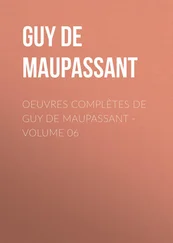“Ticks don’t have a taste for bloodless old buggers like me,” said Monkman, smiling. “They’re for the young ones like Daniel here. The sweet ones.”
“Berries don’t amount to much this year. Hardly worth your while to look.”
“When you’re my age you find you fill your time with any kind of foolishness. I get a couple of cupfuls, I’ll be happy. It passes the time.”
Mrs. Marker crooked her finger at the biggest boy on the porch. “Doyle here knows all the best places to look. Doyle, you take Mr. Monkman and show him where to look. He’s the wanderer,” she explained. “Knows every inch of the place, Doyle does. I’d appoint him guide, if I was you.”
“No, don’t bother,” said Monkman, holding up a hand to ward off Doyle. “Where’s the fun if you don’t find them yourself?”
“South,” urged Mrs. Marker desperately as the old man and boy began to move off. “South’s your best bet. They ripen south first,” she called, pointing.
“South, my ass,” muttered Monkman under his breath. “North it is.” The old man led the way. A few minutes’ walking brought them to four ramshackle granaries. A flock of blackbirds exploded out of the shadows cast by the buildings where they had been feeding on oats and barley leaked onto the ground. The sudden flight, the whir of wings, the indignant cries of chek ! chek! gave Monkman a start and shook him out of an absorbing rehearsal of what exactly he would say to Alfred Marker when he confronted him with the steer that had supposedly been dispatched by a bolt from heaven. It was then it struck him what going north meant. There were only two clumps of bush big enough to hide a steer in to the north. One ran along the fence line separating quarters and the other was a five- or six-acre patch of uncleared poplar, birch, and scrub oak standing in the midst of the field.
The field. Thinking of it made him apprehensive, made him step more quickly, made his chest tighten. They were crossing summerfallow now, heading toward the distant fence line where the tops of the poplars flickered silver in the sun and wind. The old man found it heavy going. His boots sank to the laces in the loose powdery soil as if it were new snow and the black earth radiated a fierce, dusty heat up into his reddening face. He wished he could turn back. A visit to the field was a visit to bad luck. For twelve years he had superstitiously avoided it whenever possible.
“When I reach those trees I’m going to find a spot of shade and cool myself out,” he declared, trying to initiate conversation. Talking would prevent thinking.
Daniel plodded along beside him without a trace of enthusiasm. Halfway up his shins his trousers were grey with dust. “Yeah, it’s pretty hot, all right,” was all the response Monkman could get.
“It’s hotter than the hubs of hell. A man could take a heart attack on a day like this. Plenty have.”
“My Dad died from heart trouble,” said Daniel. “He was forty-eight. That isn’t very old.”
Monkman threw the boy an appraising glance. Daniel’s expression was guarded, set. “You don’t remember him, do you?” asked Monkman.
The question provoked no change in the boy’s face. “No,” he said.
Monkman let the matter drop. They went on in silence until they reached the wood where a narrow strip of grass separated the tilled ground from the grove. Groaning theatrically, the old man shuffled over to the shade spread by the trees and lowered himself stiffly, in stages, down into the brome grass tassels. There he lay, the crushed stems prickling the skin of his back through his shirt and the pollen and dust he had disturbed settling on him. He had placed his hat squarely in the centre of his chest. Twice he sneezed violently.
“If you’re too tired to walk back, I’ll fetch the truck for you,” the boy offered, hovering over him.
“No, I’m fine. But what you can do is take a prowl in the bush and see if that bastard’s tied my steer up in there.”
Daniel wasn’t eager to take up the suggestion. “She said there’s ticks in the bush.”
The old man laughed.
“What’s so funny? You think it’s so funny, why don’t you go look yourself?”
“Played-out, fat old men aren’t built for bush. They’re not built for climbing over deadfalls and squeezing through all that kind of shit.”
“So why should I? What’s in it for me – getting eaten alive?”
“Five dollars if you locate my steer.”
“Five dollars?” Daniel was taken by surprise. For him it was a lot of money.
“Five dollars.”
“And if I don’t?” he demanded, suspicious of a catch.
“You’ll get fifty cents for effort. The prospect of an extra four-fifty ought to encourage you to look careful. Deal?”
“Deal.”
He heard the grass rustle, a dry twig crack as Daniel left him. Then he knew he was alone. Alone, it was more difficult to prevent the field beyond the curtain of trees from stealing back into his mind. To hold it out, he began to review in his mind the things he must soon tell Daniel.
It was very important to do it right. He had never said any of these things to his own son Earl. But then talking to Earl in such a fashion would have been pointless. None of it would have been any use to Earl. Earl had never been constituted to make anything out of common sense. This one was. This one weighed you while you weighed him. Earl had never weighed anybody. He had thought everyone was cut from the same cloth as he was. If you came right down to it, Earl wouldn’t have been able to learn what he had to teach him. This one, he suspected, knew half of it already. A shrewd, calculating little bugger to whom five dollars made all the difference in the world. So different, the two of them, Daniel and Earl. How did it happen, the clouding and confusion of bloodlines in a family? For the life of him he had never been able to see himself in his own son and yet he believed he could in his grandson. What was the old saying? Character jumps a generation? Was there anything of Daniel’s father in him? Of course, he couldn’t say. He knew nothing about the boy’s sire, the tailor, or whatever he had been. There must be some of that in Daniel, some tailor, although he couldn’t spot it. Everything he saw in the boy struck him as pure Monkman. The last of the line. The only grandchild.
He thought of Martha, dead before she was a grandmother.
Monkman could feel his sweat drying in the folds and creases in the skin of his neck. He realized how tired he was. Not much sleep again last night on account of the dream. Now, every time his eyes closed an insect would light on his face and go for a stroll. They must take me for dead, he thought, an old man stretched flat on his back in the grass with his eyes shut.
He blinked, brushed his hand back and forth over his cheeks. The cool and damp of the earth was rising up, leaching into his flesh. How? The ground ought to be hot and dry as a fever, there hadn’t been rain in weeks. He was contemplating sitting up so he didn’t take a chill in his kidneys when a dragonfly came helicoptering inches above his face and pinned him to the ground with its beauty, with its ruby sheen and shimmer. Martha had owned a brooch shaped like a dragonfly. It had fragile lacquered wings. Martha died of a stroke. Vera’s husband of a heart ailment. No luck in this family. The tailor had looked old in the wedding picture she sent. Too old for a wisp of a girl like her. Bride and groom standing on courthouse steps. Is that where Jewish people got married? In court? There was nobody else in the snapshot. No family, no friends. So who took the picture?
Alec’s grip on his hat relaxed. It slid off his chest and dropped by his side. He was standing in a poorly lit room being fitted for a suit. The sure, deft touch of the hands running the tape over his body was lulling, soothing. The tailor was measuring him. His limbs grew heavier and heavier, his joints looser and looser.
Читать дальше












